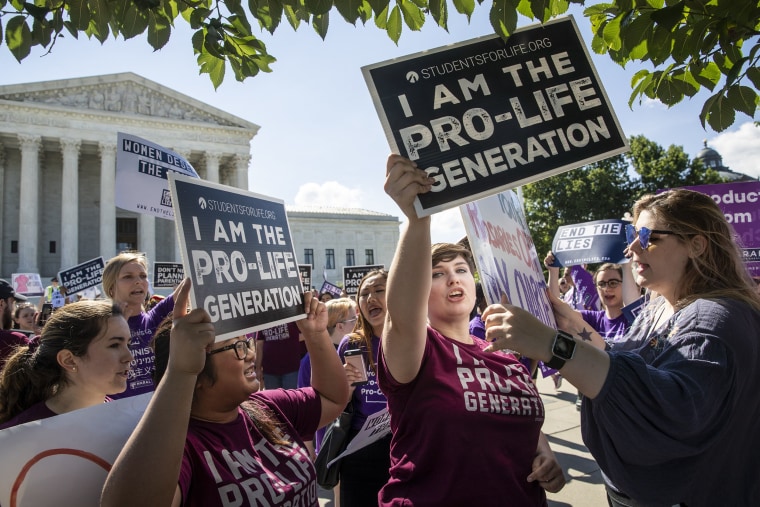Legal analysis
Contrary to what many commentators and Democrats are saying, Roe v. Wade is probably not "doomed."
Abortion will likely not be illegal in 20 states within 18 months. A new justice will certainly create a new balance on the court. Retiring Justice Anthony Kennedy was the fulcrum, now Chief Justice John Roberts is the median vote. But Roe will not be overturned just because there may be a new conservative majority on the court after President Donald Trump, who is set to announce his nominee on Monday, replaces Kennedy.
There are arguments for overturning Roe v. Wade. It was decided in 1973 on a shaky justification: The privacy right to an abortion does not explicitly appear in the Constitution, but it essentially radiates from the glow (the "penumbra") of its text. Controversial when it was decided, the reasoning in Roe remains as controversial today.
But the court will not overturn a past decision unless there are strong grounds for doing so. This doctrine, "stare decisis," promotes the consistent, reliable and predictable development of the law, while assuring the public of the court's integrity.
It's a philosophy, however, that some might find difficult to accept, which is this: Sometimes it is more important to the court that the law be settled, than settled right.
The court is quick to point out that stare decisis is "not an inexorable command." Yet, the doctrine is so persuasive that a departure from precedent like Roe must be supported by some "special justification."
Stare decisis has added force when the public has acted in reliance on that precedent, and overruling the decision would dislodge settled rights and expectations, or require an extensive response by the legislature.
Even Roberts — now considered the "swing vote" on the court — has acknowledged the disruption to the legal system when precedent is overruled.
"I do think that it is a jolt to the legal system when you overrule a precedent. Precedent plays an important role in promoting stability and evenhandedness. It is not enough — and the court has emphasized this on several occasions — it is not enough that you may think the prior decision was wrongly decided."
That was then-nominee Roberts assuring Sen. Arlen Specter, D-Pa., during his confirmation hearings in 2005 that a judge may not depart from stare decisis simply because he thinks the prior decision was wrongly decided.
It's also significant that Roe has since been re-affirmed several times, including in 1991 in Planned Parenthood v. Casey, which applied the principles of stare decisis to Roe v. Wade, and, according to the chief justice, is itself a precedent of the court that is entitled to respect.
A judge with a mind to overrule Roe would have to confront not only Roe itself, but also its subsequent reaffirmation, including that in Casey. Of course, one criticism of Casey was that it paradoxically "overruled" Roe by substantially changing its framework, but then "affirmed" Roe ... after arguably overruling it.
Another consideration is this: The court will be reluctant to take away a constitutional privacy right, even if that right was granted with dubious reasoning. If Roe were being decided for the first time by the new court, a conservative majority could easily decline to recognize a new privacy right. However, taking away an already granted, substantially relied-upon right is much harder for the court to do.
The bottom line: Even if a case addressing Roe and Casey quickly wends its way up to the Supreme Court, it does not mean they will be overruled. The court's decision should not be a show of hands: those personally for abortion versus those personally against it.
The court is an institution with a history, and that history generally must be followed, with some exceptions. Roe is not likely to be an exception to that rule.
Danny Cevallos is an MSNBC legal analyst. Follow @CevallosLaw on Twitter.
